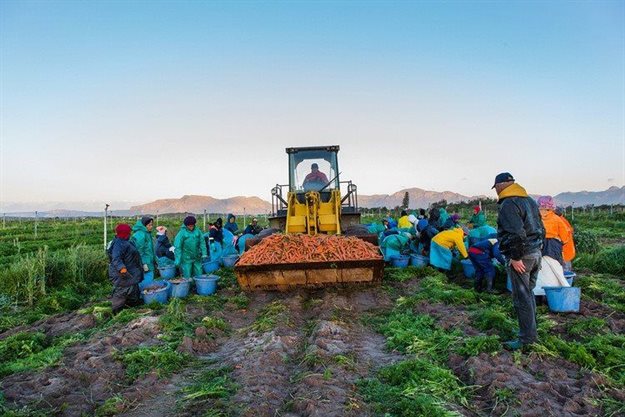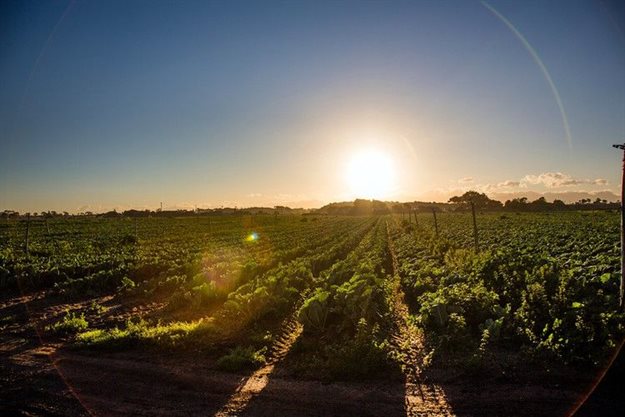
Top stories

Marketing & MediaCould an alcohol ad encourage children to climb into washing machines?
Karabo Ledwaba 7 hours





More news














The dispute at issue is between a developer proposing to turn the site into a 15,000-home mixed-use community called Oakland City, and the PHA Food and Farming Campaign (PHA Campaign), a grassroots farmers’ organisation that is contesting the proposal. The City of Cape Town and the Western Cape Province are also parties to the case, having sided with the developer in opposition to the PHA Campaign in court. The city and province both deny that they inappropriately approved aspects of the Oakland City proposal.
All of advocate Paschke’s asserted “myths” are rebuttable, but the following ones in particular (slightly rearranged) reveal fundamental misconceptions regarding the essence of the PHA Campaign’s arguments.
Incredibly, the city argued in court that the Oakland City site is not actually part of the PHA, despite a long history of documentation, and even the city’s current proposed heritage zone designation, that indicate otherwise. The province’s own study describes how since the 1960s, the PHA, including the Oakland City site, has been designated as horticultural land.
It was not until the past few years that the city and province took a number of actions to chip away at the PHA’s boundaries. In particular, the city hangs its hat primarily on a change to its Metropolitan Spatial Development Framework in 2012, presaged by a similar 2011 provincial decision, that shifted the “urban edge” of the city to include the Oakland City site, thereby severing it from the PHA territory. These actions, the PHA Campaign contends, were unlawful and contrary to national law and policy.
The city’s reliance on the 2011/2012 urban edge shift to support the Oakland City site’s deletion from the PHA is akin to renaming District Six. The city cannot so easily erase the site’s historical and physical, not to mention legal, connection to the PHA. The Oakland City site is by no extent of the imagination urban; rather its use and features follow the trajectory, now disrupted, of the rest of the PHA.
The city and province argued that none of the Oakland City site has been farmed, verbally footnoting that there has previously been “illegal” farming on a small portion of the land. One reason the land isn’t being farmed right now is that the owner — the developer — will not permit it. This is in contrast to farmed areas on adjacent land also held by developers.
What the city and province also did not note was that a significant portion of the Oakland City site has been sand dune mined and then neglected, rather than rehabilitated to productive farmland as required under the law. Historically, PHA farmland has been established according to a process of sand dune mining followed by rehabilitation for farming purposes. This process has slowly progressed in patchwork form over the decades. It is therefore unsurprising that portions of the PHA have not yet been farmed.
The city made much in its arguments before the court that the Oakland City site is not currently producing food or jobs, and that it is not suitable for farming. The Oakland City site shares the same general physical, hydrological, and climatic features as the rest of the PHA, including what the province’s own study states is the best suited land for agriculture within 120 kilometres of the city. Portions of the PHA have been farmed for well over 100 years, long before the introduction of modern fertilisers and water systems that the city argues is necessary for its cultivation. Governmental and non-governmental studies alike demonstrate the importance that the PHA plays in food production for the city, as a producer for particularly food-insecure populations and as regulator of broader market prices for the city.

The city argued that farming the Oakland City site would pollute the aquifer with fertiliser and chemical runoff. The city never actually conducted an assessment regarding farming as an alternative to the proposed development. Instead, the government relied on the Oakland City site’s reinvention as an “urban” area to avoid considering farming uses, thanks to the previously mentioned urban edge shift in 2011/2012. This means neither the city nor the province has properly weighed the costs and benefits of urban development versus farming.
There is evidence that the aquifer is impacted by ecologically damaging farming practices. This is not a reason to stop farming, but instead to shift our farming practices to more sustainable means. Claims that small-scale commercial organic farming cannot work sound very similar to the arguments against the shift to carbon neutrality. To say that we must take action to avoid imperiling the environment and our future is not to say it will be easy, but that does not mean it cannot or should not be done. Moreover, such a shift in farming practices is possible. For example, in Munich, city officials have engaged in a decades-long project to protect their aquifer and source of water through sustainable farming practices above its recharge zone.
The city’s advocate made much of the benefit that the development proposal’s 15,000 homes would bring to the city. But are these homes for the poor? Will they house the thousands of people living in informal settlements within and around the PHA? Are they located near existing infrastructure? Will they be efficiently located and address Cape Town’s spatial fragmentation and traffic congestion?
The answer is no. The city’s own analysis concludes that the PHA’s high water table effectively makes subsidised housing on the site cost-prohibitive, and developers are under no obligation to provide any. The development will require completely new infrastructure, including roads, water and sewage pipes, and electrical lines. In a city with 10,000 other well-located housing opportunities, and with a damning legacy in spatial segregation, poor service delivery, traffic congestion, and strained public coffers, putting houses in the middle of designated farmland seems like a particularly unsuitable option.
In truth, this development proposal follows a line of poorly planned developments offered under the guise of solving the city’s housing problems, but which in fact perpetuate the social and spatial dislocation of the city. In this manner the Oakland City project mirror’s the ill-fated Wescape project, which proposed thousands of homes in Cape Town’s hinterland within a nuclear fallout area. The PHA, including the Oakland City site, is similarly unsuitable for largescale urban development. One need only to read Crispian Olver’s new book on corruption in Cape Town to get a sense of the fishiness of the Oakland City project proposal.
Water licence rejection victory for Philippi Horticultural Area activists | Cape Times https://t.co/Zpx5N2MtmO
— Caryn Venter (@madgurl69) November 13, 2019
Finally, the city’s counsel also argued that the judge sitting hearing the case is not empowered to question the city’s policy decision with respect to the designation of the Oakland City site as “urban”. This runs in direct contrast to the position the city takes in its most recent amendment to the Municipal Spatial Development Framework, which essentially defers to the court, stating that if the court rules in the PHA Campaign’s favour, the site should be considered again to be part of the PHA. More broadly, the city and the province have committed in writing to protecting and investing in the PHA. Their arguments in court suggest otherwise.
Critics of the PHA Campaign complain that it doesn’t represent all farming interests in the PHA. They are correct on that point. The PHA Campaign isn’t interested in repeating mistakes of the past, either with respect to the city’s urban development or harmful farming practices. What the PHA Campaign does embody is a vision for the PHA as supporting Cape Town at the vanguard of sustainable, food-secure, socially just cities.
The city’s asserted myths about the PHA do not hold up against the weight of evidence. More than that, they themselves distort and obscure the harm the city’s actions continue to perpetuate against the interests of its people. Who is really peddling in myths?
Article originally published here.